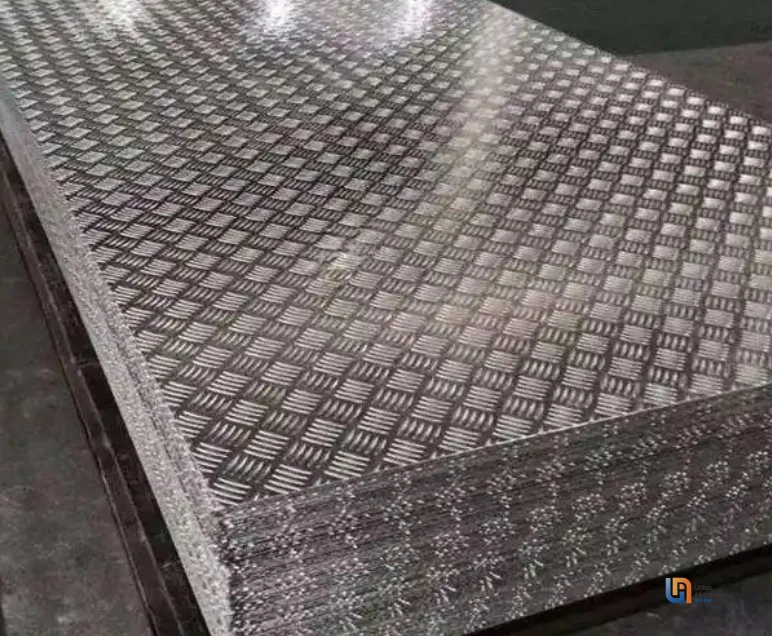Aluminum is widely used in various industries, and its thickness measurement plays a crucial role in determining its suitability for specific applications. When it comes to 22-gauge aluminum, understanding the thickness and its practical uses can help businesses and individuals choose the right material for their projects. In this guide, we'll discuss everything you need to know about 22-gauge aluminum, its thickness, and its common applications.
H2: What is Gauge Measurement in Metals?

The gauge system is a standardized measurement for determining the thickness of various metals, including aluminum. Unlike other measurement systems, gauge is based on numbers rather than units of length. Generally, the lower the gauge number, the thicker the metal. Gauge thickness measurements may vary slightly across different materials, but in aluminum, a specific gauge like 22 gauge corresponds to a standard thickness.
H3: Why Gauge Thickness Matters in Aluminum
Understanding the exact thickness of aluminum sheets or coils is important because it impacts:
- Durability and strength
- Weight
- Flexibility
- Suitability for specific applications
H3: 22 Gauge Aluminum Thickness in Inches and Millimeters
For 22-gauge aluminum, the thickness typically measures:
- 0.025 inches (in imperial units)
- 0.64 millimeters (in metric units)
While this measurement is industry-standard, some manufacturers may offer slight variations in thickness, so it's always advisable to check with your supplier.
H2: Common Uses of 22 Gauge Aluminum
22-gauge aluminum is widely preferred for applications where moderate strength and lightweight properties are required. Its thin profile makes it easy to work with, yet it still provides enough strength for many uses.
H3: Top Applications for 22 Gauge Aluminum
Automotive Parts
- Used for body panels, trim pieces, and other lightweight parts in vehicles.
- Provides excellent corrosion resistance and helps reduce overall vehicle weight for fuel efficiency.
Roofing and Siding
- Ideal for residential and commercial roofing due to its resistance to rust and lightweight.
- Easy to install and can be custom-shaped for specific architectural needs.
HVAC Ducting
- Commonly used in HVAC systems for ductwork as it’s easy to fabricate and install.
- Provides a good balance between strength and flexibility for tight spaces and curves.
Signage and Display
- Preferred for signs and display boards due to its lightweight and ability to hold up well outdoors.
- Can be easily painted, engraved, or customized for different purposes.
Food and Beverage Industry
- Used for packaging and containers, as aluminum does not rust and is safe for food contact.
- Maintains shape and is easy to transport without adding much weight.
H2: Advantages of Using 22 Gauge Aluminum
Choosing 22-gauge aluminum comes with a range of benefits, making it ideal for many industries. Here’s why many manufacturers and designers opt for this thickness:
H3: 1. Lightweight and Flexible
Aluminum is inherently lightweight, making it suitable for products where weight is a consideration. This feature is especially useful in the automotive and aviation industries, where lighter materials contribute to better fuel efficiency.
H3: 2. Corrosion Resistant
Unlike some metals, aluminum is naturally corrosion-resistant. This quality makes 22-gauge aluminum a preferred material in outdoor applications, such as roofing, siding, and signage.
H3: 3. Easy to Work With
22-gauge aluminum is thin enough to be easily cut, bent, and shaped for various applications. It can be handled with common metalworking tools and does not require extensive machinery, making it versatile and economical for small to large-scale projects.
H3: 4. Affordable and Cost-Effective
Due to its moderate thickness, 22-gauge aluminum is more affordable than thicker gauges, making it a cost-effective choice for manufacturers and consumers alike. It provides sufficient strength without the added cost associated with thicker materials.
H2: Unionaluminium: High-Quality Aluminum Products for Every Need
Unionaluminium is a leader in the production and distribution of high-grade aluminum products worldwide. With advanced facilities and a strong commitment to quality, Unionaluminium meets a wide range of aluminum requirements for various industries.
About Unionaluminium
Unionaluminium’s facilities include cutting-edge equipment, such as melting and holding furnaces from GAUTSCHI, electromagnetic stirring machines, and continuous hot rolling mills. These advanced systems ensure high-quality production of aluminum products suitable for diverse applications.
Unionaluminium Product Range:
- Aluminum Ring
- Aluminium Sheet
- Aluminium Coil
- Aluminium Circle
- Aluminum Checker Plate
- Aluminium Tread Plate
- Aluminium Embossed Coil
- Aluminium Coating Coil/Sheet
- Aluminium Foil
By leveraging its first-level equipment and a strong supply chain, Unionaluminium provides cost-effective, reliable aluminum products for projects around the world.
H2: Frequently Asked Questions (FAQs)
H3: 1. How thick is 22 gauge aluminum in inches and millimeters?
22-gauge aluminum has a thickness of approximately 0.025 inches or 0.64 millimeters. However, slight variations may occur depending on the manufacturer.
H3: 2. Is 22 gauge aluminum suitable for outdoor use?
Yes, 22-gauge aluminum is corrosion-resistant and ideal for outdoor applications such as roofing, siding, and signage. Its lightweight and durable properties make it a good choice for environments exposed to moisture.
H3: 3. Can 22 gauge aluminum be welded or soldered?
Yes, 22-gauge aluminum can be welded or soldered, although it requires careful handling due to its thinness. Many professionals use specialized equipment to avoid warping and ensure clean, strong joints.
H2: Comparison Table for Aluminum Gauges
The following table provides a quick reference to compare different aluminum gauge thicknesses and their applications:
By understanding the specific characteristics and advantages of 22 gauge aluminum, you can make more informed decisions about its applications and potential benefits for your projects. With suppliers like Unionaluminium providing high-quality aluminum products, businesses worldwide can access top-tier materials for various industrial, commercial, and residential uses.
